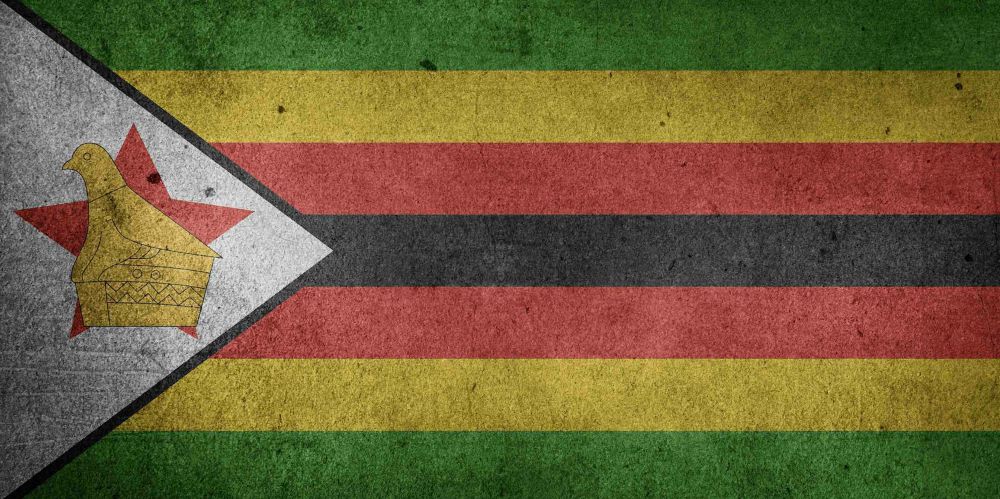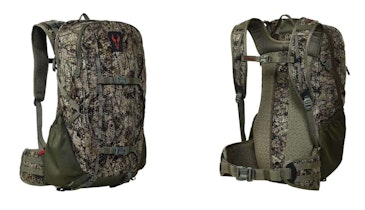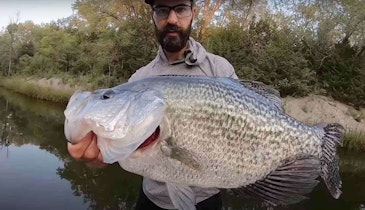The truck was junk, rattling like a Brazilian maraca, the steering wheel pressed so close to his chest it looked to crush him even if there wasn’t a wreck, which was questionable, given his driving abilities. The ball joints were so loose that precision driving was an impossibility, the tires had less tread than a baby’s bottom has hair, and the truck shook down the Africa two-track like a pinball machine one bump short of “tilt.”
Pieter, my driver and outfitter, was a burly Afrikaner with a dirty yellow beard and one eyelid that just wouldn’t behave. It twitched and jumped erratically, the result of a wound suffered when he was a Rhodesian army scout. One second you looked over at him and saw both blue eyes, then suddenly the left eyelid would droop and he’d be looking you over with half an eye. Normally I would have found all this somewhat funny, but given the situation, my nerves were starting to frazzle.
This was mid-1980s Zimbabwe, less than a decade after the country gained official independence, and when Robert Mugabe’s corrupt government was beginning the process of repatriating the land from the white minority so it could be parceled out to the black majority, and ethnic divisions among the various tribes were at fever pitch. So when we bounced around a corner on the bush road and ran into a military roadblock, I began to wonder what I had gotten myself into.
Just 5 kilometers back we’d seen where a note had been nailed to a white farmer’s door telling him to take his family and leave immediately or they would be killed. The uniformed “soldier” that approached the truck appeared to be all of 14 years old, and his dilated pupils had the look of someone higher than the proverbial kite. He was waving an AK-47 around like a fly rod, but after a few choice words from Pieter, who blessedly spoke the native dialect fluently, we were allowed to proceed.
First Trip to Africa
At the time I was greenhorn when it came to international hunting. Sure, I’d heard and read about the corruption and instability prevalent in much of the Third World, but the caveat was always, “Man, it’s kinda crazy over there, but the hunting is untapped! You need to check it out before it’s too late!” In the case of much of sub-Saharan Africa, too late meant two things: when all the game has been killed by poachers or locals who can’t farm worth beans and want to get rid of the competition for their cattle, or when all hunting would be closed off to foreigners by corrupt governments.
Bowhunting Africa was in its infancy in those days, so all I was allowed to shoot with a bow were several impala that would be primarily used as leopard bait. I was in country for 3 glorious weeks and treated like I was somebody special, which for a farm kid working my first real gig in the magazine business was a treat. With my rifle I shot a huge eland, tusky warthog, regal kudu bull and a diminutive duiker the size of a large housecat that everyone told me was one of the largest, horn-wise, they’d ever seen. This was amazing given the fact the horns were less than 4 inches long. It took 20 evenings in a blind before I shot the leopard.
Is There a Doctor in the House?
I almost didn’t get that job finished. At dinner one evening about halfway into the hunt I felt really sick to my stomach, and retired early. After a bit, my host and his wife came in to see how I was doing. When they asked if I had noticed where anything might have bitten me, I unashamedly pulled down my pajama bottoms and showed them a circular bite about the size of a pen cap.
“Oh boy,” she said, “it’s a mushy fly.”
When I asked what that was, exactly, they told me it was an insect that can get onto you when you rub against the brush. It then burrows into you, lays its eggs inside that burrow, and waits for the larvae to hatch, which then feed on you as they grow. They told me it was super-dangerous; that if we didn’t get it dug out in short order it could keep burrowing into my blood stream, where the results would be very painful . . . or worse.
Because the nearest real doctor was 2 day’s hard drive away, Pieter’s wife would have to do the cutting. Pieter went and retrieved a medical kit, which happened to be a Russian army surplus bag from the 1950s, but it was all we had. So, just like an old black and white movie, I drank half a jug of gin and bit down on a leather belt while she dug that nasty bug out of my butt.
I remember asking Pieter to take a picture, and I do have a color slide of me giving her the look of death as she was doing the digging. When she was done, I slept hard until morning. When I woke I felt a tad hungover, but otherwise fit as a fiddle. I had to sit the toilet sidesaddle for a couple days, but other that, I was good to go.
I often wonder what happened to those two, and all the tribal people they employed. A few years later the government came and took their land without compensation. And I wonder what will happen to my many friends in South Africa, where the government is today saying they might do the same thing. When I think of such things now, I am reminded that nothing in life stays the same, and how lucky we are to be Americans.
Editor’s note: Bob Robb returned to Africa several times since his first trip to Zimbabwe. Below you can check out an archery adventure to South Africa for cape buffalo — a beast better known among hunters as “Black Death” and “Widowmaker.”







